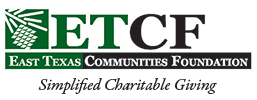The first part of the year is a great time to reflect on where you stand personally, professionally, and financially. How did last year go? Are you where you thought you would be at this point in your life? Is your family in a good place concerning their life choices? Do you find yourself blessed beyond your expectations? Based on your reflections, do you need to make some decisions going forward concerning work, family, health, or wealth?
Taking a look at your current situation can give you the perspective you need to put plans in place for the road that lies ahead of you. No hard and fast threshold of personal achievement or wealth marks whether you should plan for the future. Many families start making formal estate plans as soon as they welcome their first child, establishing guardianship provisions, and purchasing life insurance. At the other end of the age spectrum, empty nesters and retirees must periodically refine their plans to account for family dynamics and financial events. Your planning should reflect your priorities, which may include family, faith, and charities in your community.
When it comes to planning, it is important to focus on the things you can control and the outcomes you would like to see. For example, no piece of paper can force a family member to behave in a certain way, but you can arrange incentives to distribute your financial resources in such a way that it encourages things like educational attainment and employment. You can also arrange distributions to encourage charitable giving.
Most people rank taking care of the needs of immediate family members as the highest priority in estate planning. Simple wills or more elaborate trusts can be utilized to make sure resources are available to take care of those you leave behind. Good documentation will provide a clear direction for trustees and executors to carry out your wishes about caring for the people who are important to you. When your wealth exceeds what you determine is necessary to leave for the care and benefit of others, or in the event there are no individuals left to receive your wealth, you should consider making provisions to support charitable causes.
There are many options available for planning your charitable legacy. Some issues for you to ponder include timing, the involvement of others, and charitable vehicles that can help you meet your philanthropic goals. Concerning timing, you should think about whether you want distributions to be made immediately upon your death, over a specified period of time (such as 5-25 years), or invested in permanent endowments which can make annual distributions to support your favorite charities forever. There are also several ways to include family members in your charitable giving, such as encouraging family members to work together to make annual grants from a short-term or permanent fund. Historically, family foundations were used to accomplish this objective, but various types of funds can be set up at a community foundation to achieve this outcome with far less formality and administration. If you discern that multiple family members may not be able to work together or have different interests, setting up separate donor-advised funds for multiple family members can give them the freedom to support their favorite interests without the need for input from other family members.
Finally, there are several charitable vehicles you should consider to meet specific charitable objectives.
Donor-advised funds provide great flexibility to support a wide range of public charities with grants of various sizes at the time they are needed. Field of Interest funds tend to focus giving a little more narrowly than a donor-advised fund by following restrictions that may require grants to specific types of charities in specific locations. Designated funds provide more narrow restrictions by naming specific individual organizations and specifying a formula or specific dollar amount for annual distributions and may be endowed to sustain such giving in perpetuity. Finally, scholarship funds can support the post-secondary education and training of students from a specific school, or those pursuing a specific career path. Our staff would welcome the opportunity to talk with you about your charitable interests and consider the appropriate vehicle to meet your goals. We work with many local professionals including attorneys, accountants, investment advisors, financial planners, philanthropic consultants and trust officers who can help you set up the foundation, trust, nonprofit or charitable fund to establish your charitable legacy. Considering your charitable legacy may be your next best opportunity to give well.


Recent Comments